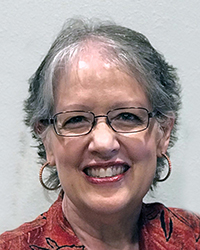

by Aleta Samford
Synopsis: Aleta introduces the sixth law of teaching with a personal and practical example of the type of students we may find in our Bible classes.
Currently, the Bible class that I teach is made up of two fine teenagers. They are as different as night and day, but are also very much alike, in a way I will explain in a moment.
One student grew up attending Bible classes, and, at the age of fourteen, is well versed in almost every significant event that is recorded in Scripture. Until four years ago, my other student had not attended Bible classes at all. She is now seventeen. A year and a half ago, she obeyed the gospel after coming to a clear understanding of her sins and the need for forgiveness.
The fourteen-year-old, as I said, is eloquent in Bible facts. He quickly retains information and can recite it back, but he has no apparent remorse, regret, or conviction in his heart that he needs a Savior.
In October of last year, we began a study of Acts, and one might think that we are at least nearing the end of the book, but we are not. We are still in chapter 8. Why? The answer to this reveals how my students are alike: neither is a student of the Bible. I feel confident that, had I chosen a book where all they had to do was read the text to fill-in some blanks, we would be finished and would have moved onto another topic.
A pupil is sometimes said to have learned the lesson when he has committed it to memory, and can repeat or recite it word for word. This is all that is attempted by many pupils, or required by such teachers as consider their work done if they can secure verbatim reproductions. Education would be cheap and easy if this were real learning and could be made to stay (Gregory, 107).
Please reread the quote slowly and understand why, long ago, Mr. Gregory, the author of The Seven Laws of Teaching, became my mentor. I take to heart my responsibility to educate my students. Mindless "verbatim reproductions" will not help me accomplish that goal. I have learned not to be awe-struck by the actions of the student who "can repeat or recite it word for word," and yet, at the same time, cannot show that those words are making a change in his heart.
My goal is to teach my students how to study the text and to glean its truths. Why? Because the power is in the gospel, in it is found the righteousness of God (Rom. 1:16-17). I have faith that God's word will further educate my student who has already put on Christ from a sincere conviction, and that it will place a real conviction in the one who feels that he already knows all the answers.
"The pupil's work, which we are now to consider, is the use of the self-activities in studying; the law of the Learning Process determines the manner in which these activities shall be employed" (Gregory, 105). The law before this one was of the Teaching Process. The nature of our teaching process will determine whether our students use their self-activities to learn for themselves.
If we observe a child as he studies, and note carefully what he does, we shall easily see that it is not merely an effort of the attention nor a vague and purposeless exertion of his powers [i.e., mindless reproductions] that is required of him. There is a clear and distinct act or process which we wish him to accomplish. It is to form in his own mind, by the use of his own powers, a true concept of the facts or principles in the lesson. This is the purpose to which all the efforts of teacher and pupil must be directed. The law of the learning process may therefore be stated thus: The pupil must reproduce in his own mind the truth to be learned (Gregory, 106).
My next article in August will explain "the act or process [I] wish [my students] to accomplish" to become Bible students. Still, I want to leave this assurance: developing Bible students begins with the youngest children—it isn't only an opportunity with older students. I cannot repeat it enough: if all the laws are studied and personalized, you will develop skills that will change the way any child at any age learns and applies God's word.
Gregory, John Milton. The Seven Laws of Teaching. Grand Rapids, MI: Baker Book House, 1884, 1986.
Author Bio: Aleta is the wife of Gene Samford who preaches for the church that meets in Kemp, TX. She has taught Bible classes for forty-five years and, to help other women join the ranks, presents a series of lessons based on God's word, The Seven Laws of Teaching, and her own experiences. She may be reached at aletas10@sbcglobal.net.
